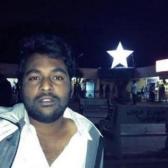---------- Forwarded message ----------
From: S G Naravane
From: S G Naravane
Emotive, biased media reports do not tell the whole Rohith story. Only the Judicial Enquiry that has been set up will do so.
Despite the reams of print ink and TV diarrhea on the death of 26-year-old student, Rohith Vemula, on January 17/18, 2016, on Hyderabad University campus, there remain unanswered questions because the unbelievable media coverage on the issue had, from the beginning, gotten mired in politics and emotions. The result has been the following waiting for clear-cut answers.
Was Rohith really a Dalit?
Translation of excerpts from a Telugu news report in "Andhra Jyoti", 22, 2016 says "Grandparents reveal that they are Vaddera kulam (OBC). Parents said they are OBC. Rohith converted to Christianity and was renamed Chakravarti — E-police enquiries.."(andhrajyothy.com/Artical?SID=19).
However, Radhika (Rohith's mother) says that "While her husband is an OBC, she herself was from the SC Mala community." Besides, she asserts that "A certificate issued by the Revenue Department of Government of Andhra Pradesh, on June 16, 2015, clearly states that Rohith belongs to the Mala community…" (The Sunday Express, January 24, 2016).
It's likely therefore that a court battle will emerge, what with the issuance of Caste certificates being a very tricky legal issue.
Meanwhile, this question of Rohith's identity itself is of cardinal importance because if the first media report that a Dalit student had committed suicide was the reason why the media began exploding on the subject across the country, permitting a number of prominent politicians to add more noise and vitriol in the subject. If the student had not been identified initially as a Dalit, the media would certainly have not been so vocal. And the public, too, would have been able to read more news and analysis of economic issues that, really, should be the biggest national.
Was student Rohith's death the first of its kind in the Hyderabad University?
Not at all. A post by one S.Swaroop Sirapangi in "Dalit Students' Union (DSU), University of Hyderabad, on Student Politics in University of Hyderabad", stated as follows:
"Raju Puyala, who was perusing his I.M.A., Linguistics VIII Semester, committed suicide on March 19, 2013 evening at Men's Hostel – H, University of Hyderabad. For the academic year 2012-2013, Raja was serving as Vice President of "Dalit Students' Union" which is one of the oldest student organisation on the University Campus.
"As a response to the disturbed student community's agitation at the University Health Center, Vice Chancellor promised to constitute a Committee comprising SC/ST/OBC faculty members and students and take necessary stern steps.
"Various student organisations reacted severely over the repeated number of suicide incidents on the Campus and officials like Vice Chancellor, Pro Vice Chancellor, Registrar, Dean Students' Welfare, Chief Warden, etc were intensely questioned. The agitation continued throughout night and only on March 20, 2013 morning it got concluded with the transfer of Raju's dead body to his family members.."(https://ssanthiswaroop.wordpress.com/2013/03/20/puyala-rajus-suicide-at-university-of-hyderabad/).
In another post, a few months later, Swaroop Sirapangi wrote as follows:
"On November 24, 2013 a new death of a Dalit Doctoral Research Scholar was found at the University of Hyderabad." He was referring to what PTI reported about "A PhD student of Hyderabad University allegedly committed suicide by consuming some poisonous substance in his hostel room, with his family alleging that he was harassed by a professor of the varsity. M Venkatesh (26) was found dead by some students at around 7 AM today, police said." (http://newindianexpress.com/cities/hyderabad/Hyderabad-University-PhD-student-commits-)
Sirapangi went on to write "As per my personal observation, for every semester one death is getting recorded at the University of Hyderabad and huge criticism is taking place every time from different quarters."
In contrast to the extensive and pan-India media coverage to the death of Rohith Vemula, the above two student deaths got relatively scarce attention across India. In fact, Google "guru" doesn't show up any media coverage for Raju Puyala's death. The suicide of M.Venkatesh did get a minutely wider look-in. While PTI did what was expected of a professional news reporting agency, "The Times of India", after talking to students, was critical that "Authorities at University of Hyderabad are yet to implement key recommendations by two separate committees looking into suicides of students from socially backward sections on campus." It also pointed out that in 2008, a committee probing the suicide of Senthil Kumar, a Dalit student from the School of Physics, had recommended the varsity to set up a "transparent process" in the allotment of guides.
"Meanwhile," said the Times, "Ramakrishna Ramaswamy, the vice-chancellor of the university, in a written note admitted to the systemic failure of the varsity in addressing issue of suicides on campus."
"The VC has also promised that each of the departments will have to give a list of students who have not been assigned guides three months after joining PhD. He also assured that if the committee finds any one responsible for the death of Venkatesh, appropriate action will be taken against them." (http://timesofindia.indiatimes.com/topic/University-of-Hyderabad) (25 Nov, 2013)
... deleted

No comments:
Post a Comment